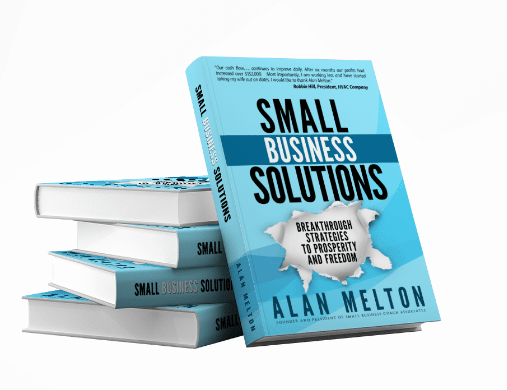VIEW BY TOPIC
- Finding Customers
- Business Systems
- Managing Employees
- Leadership
- Managing Money
Related Posts

Ready to Grow Your Business Fast?
Here’s How I Grew Five Businesses, and Eventually Sold One to a Fortune 500 Company.

Personal vs. Business Finance: How to Keep Separate and Manage Them

Guest Writer Ken Boyd
Accounting & Finance Expert
Content manager at AIS-CPA
w: https://www.ais-cpa.com/
Do you keep your personal vs business finances separate … or is everything mixed together in a single account?
Many small business owners, excited by their new start-up idea, give their first clients their personal checking account details for payments.
Similarly, many small business owners mix other finances, such as using the same PayPal account for both business and personal purposes, or putting all expenses on one credit card.
Personal vs. Business Finance: How to Set a Clear Line Between the Two and Manage Them Properly
This might seem like no big deal if you’re just getting started. However, as time goes by, having your personal vs business finances separated will make things much easier for you.
Why Separate Your Personal vs Business Finances?
If you’re an independent contractor, rather than the owner of an LLC, then the money you make from your business is your personal income.
You might think this means it’s fine to just use your personal bank account to receive your freelancing income and to pay for expenses. After all, it’s all your money.
But it’s important to keep your personal vs business finances separate for several key reasons:
- It’s hard to tell how your business is doing when your business income and expenditure is mixed with personal income and expenses.
- You’ll struggle to do your accounts when your business spending is mixed in with your grocery shopping — and you might miss out on legitimate expenses.
- When you need to pay your tax as a freelancer, it’s much easier to figure out what you owe if your personal and business finances are separate. Plus, you can more easily put aside money for taxes if you keep your business account separate from your personal one.
- If you want to take out a loan to grow your business, you’ll likely need to provide proof of how the business is currently doing. It’s easier (and more professional) to be able to show your business bank statement rather than having to pull the relevant details out of a personal bank statement.
- Similarly, if you want to sell your business, you may need to show your bank statements to prove how much the business is currently bringing in.
How to Clearly Distinguish Between Personal vs Business Finances
The good news is that it’s relatively straightforward to draw a clear line between your personal finances and your business finances.
Here are three crucial things to do:
#1: Open a Separate Bank Account for Your Business
You don’t necessarily need a business bank account: a regular checking account may work fine for you. What matters is that you have a separate bank account for payments to come into and go out of for your business. Eventually you or your accountant will likely use an accounting tool such as Quickbooks online and your business bank information can be easily integrated with Quickbooks. You may find it easiest to use a different bank. You’ll also want to set up separate accounts for PayPal or other payment services you use.
Tip: Make sure you have easy access to online banking for your new account. This makes it quick and easy for you to check what’s in your account, to send payments, to confirm that a client payment has arrived, and so on.
#2: Consider Setting Yourself Up as a Limited Liability Corporation (LLC)
As a limited business, you’re required by law to keep your business vs personal finances separate. This also protects you from any liabilities of your business. For instance, if your business goes bankrupt, you won’t be personally liable for the debt. It can also give you more credibility with clients, in certain sectors.
Tip: There are pros and cons to being an independent contractor versus running a limited business. You may want to get expert advice to help you decide which is best for your situation.
#3: Pay Yourself a Regular Salary
Most small businesses find that income goes up and down from month to month. You might find that it helps to pay yourself a regular salary, either monthly or every two weeks, so that you can more easily budget in your personal life. Make sure you keep enough reserves in your business account to allow for the inevitable ups and downs in income. Plus, if you pay yourself a regular salary, lenders will see you as a more reliable borrower. That can come in handy if you need financing. And if you need proof of income for the bank, you can generate pay stubs instantly online and use them to show lenders how much you make.
Tip: It’s sometimes tempting to focus on business growth instead of taking out enough money for yourself and your family. But it’s going to be tough to grow your business if you’re exhausted, overstretched, and worrying about putting food on the table. Take out your salary before figuring out how much you have to invest in things like website design or running ads.
Summary
Managing your personal vs business finances can be tricky. It may take a while to get things right. The best first step to take is to have separate bank accounts for your business and personal finances: everything else should follow on from there. As you delve deeper into understanding your business finances, it’s crucial to have a comprehensive view of your financial health. Utilizing a three-statement financial model can provide insights into your business’s income, expenses, and cash flow, ensuring you make informed decisions for sustainable growth.













